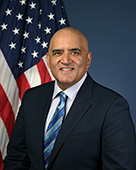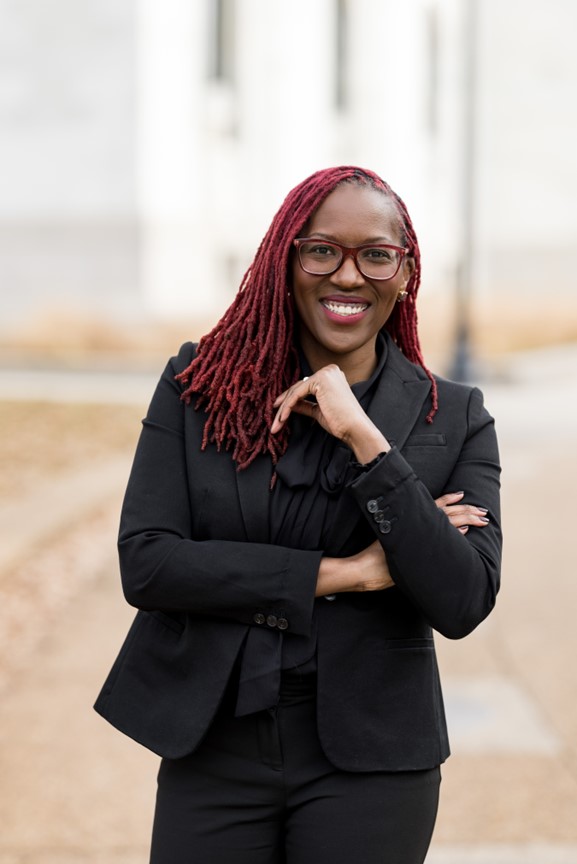- APBP
- Membership
- Chapters
- Webinars
- Resources
- News
- Events
|
October 3-5 and 10-12, 2023
KEYNOTE AND PLENARY SPEAKERSJennifer Toole
Jennifer Toole is the founder and President of Toole Design, a consulting firm with 18 offices throughout North America and a staff of 275, including engineers, planners and landscape architects who have dedicated their careers to making our transportation system safer, more resilient, and more equitable. Jennifer was a founding member of APBP and served as the President of the organization’s Board of Directors back in the early years (2000-2003). Over the course of her career, she has played a pivotal role in the creation of national, state and local design guidance to improve the safety of pedestrians, bicyclists and transit users and has done everything from helping to write federal guidance to designing a safer crosswalk. Jennifer is a certified planner with a degree in Landscape Architecture. She’s an avid walker and bike commuter, and one of her favorite things to do is to go for e-bike rides with her 86-year old father. Administrator Shailen Bhatt
On January 13, 2023, Shailen Bhatt was sworn in by U.S. Transportation Secretary Pete Buttigieg as the 21st Administrator of the Federal Highway Administration (FHWA). Bhatt was confirmed unanimously by voice vote in the U.S. Senate on December 8, 2022. He is the first person of Indian descent to lead FHWA. In this role he oversees over 2,700 FHWA employees in all 50 States, U.S. Territories, and the District of Columbia, and provides executive leadership on strategic initiatives and policy, including administering more than $350 billion as part of President Biden's Bipartisan Infrastructure Law and its formula and competitive grant programs that are available to State departments of transportation, metropolitan planning organizations, local governments, Tribes, territories, federal land management agencies, and other organizations. As Administrator, Bhatt brings a record of successful project and program delivery needed in this once-in-a-generation level of infrastructure investment in which the impacts of FHWA policy and funding choices will last for generations, and will make people safer, reduce the emissions in our air while implementing resilient transportation systems for our changing climate, create a fairer transportation system, and strengthen our economy. Bhatt brings to this role a passion for improving safety and protecting all road users on America's roads, bridges, highways, and other surface transportation infrastructure, including people using them for walking and biking. He is also committed to transforming our nation's infrastructure systems to address transportation's impacts on our global climate, while making them more equitable and fair for all. His distinguished career includes serving in leadership positions in the public and private sectors, including the Kentucky, Delaware, and Colorado Departments of Transportation, the Intelligent Transportation Society of America, AECOM, and as FHWA's Associate Administrator for Highway Policy and External Affairs in the Obama Administration. Bhatt graduated summa cum laude from Western Kentucky University with a degree in Economics. He considers being a good father and husband to be the most important priority in the world, and he and his wife Neelam are the proud parents of two daughters, Saanvi and Nandini. While Bhatt is focused on his day job, he keeps his skates sharpened, his stick freshly taped, and stands ready to answer the call for any NHL team ready to take a chance on him. Veronica Davis
Veronica O. Davis is Director of Transportation & Drainage Operations for Houston, Texas, leading the team responsible for maintaining and improving the infrastructure that spans Houston’s 671 square miles. Veronica has nearly 20 years of experience in engineering and transportation planning. She is an Entrepreneur and Civil Engineer, co-founding Nspiregreen, LLC., which manages Community, Multimodal Transportation, and Environmental planning and consulting. While at Nspiregreen, she led the Vision Zero Action Plans for Washington, DC and the City of Alexandria. She co-founded Black Women Bike, an organization and movement which builds a community and interest in biking among black women through education, advocacy and recreation. Veronica was recognized as a Champion of Change by the White House in 2012 for her professional accomplishments and advocacy. Veronica graduated with Bachelor of Science from University of Maryland College Park and a Master of Engineering and a Master of Regional and Urban Planning, Land Use and Environmental Planning from Cornell University. She completed graduate work towards a PhD in Civil Engineering from University of Maryland College Park. Veronica serves on the committees for Transportation Research Board, the board for America Walks, as well as technical advisory boards at the University of Maryland and Cornell University. Transportation planning has often had destructive consequences for underserved communities. Veronica Davis wants to shed light on those inequalities. In her new book, Inclusive Transportation: A Manifesto for Repairing Divided Communities, Veronica lays out her vision to bring about a new era of transportation planning. Veronica will explain why centering people in transportation decisions requires a great shift in how transit planners and engineers are trained, how they community, the types of data they collect, and how they work as professional teams. She’ll define what “equity” means for a transportation project and how it can create something safer, better, and more useful for all people. Beatriz Rodrigues
Beatriz Rodrigues is a Program Manager at GDCI, supporting cities that are part of the Bloomberg Initiative for Global Road Safety (BIGRS). Beatriz holds a Bachelor’s degree in Architecture and Urbanism from the Federal University of Ceara (UFC) and a Master’s in Transportation Planning from the same University. Before joining GDCI, she worked as the Urban Design Coordinator for cities in northeast Brazil, as part of BIGRS, and served as a Transportation Planner in the City of Fortaleza, Brazil. Road safety is a critical and pressing issue that impacts communities worldwide. Approximately 1.3 million people die each year as a result of road traffic crashes, and more than half of all road traffic deaths are among vulnerable road users, a consequence of an urban mobility model that prioritizes moving cars and not people. Low- and Middle-Income Countries, such as Latin American countries, suffer the large majority (93%) of global road crash deaths and face particular challenges in managing this crisis. Willing to transform cities around the world, GDCI has been working for nine years to inspire leaders, inform practitioners, and invite communities to imagine what’s possible when we design streets that put people first. For this session, we will explore some Latin American experiences on street transformations that can inspire people around the world to transform their streets into safe, healthy, accessible, and equitable spaces for everyone. |





